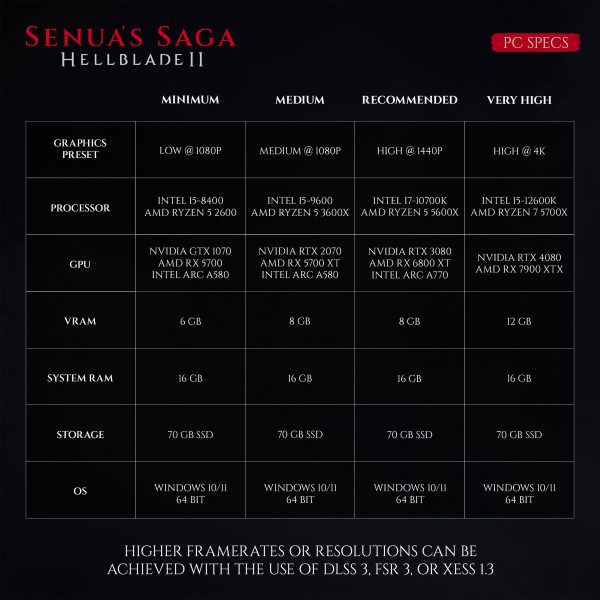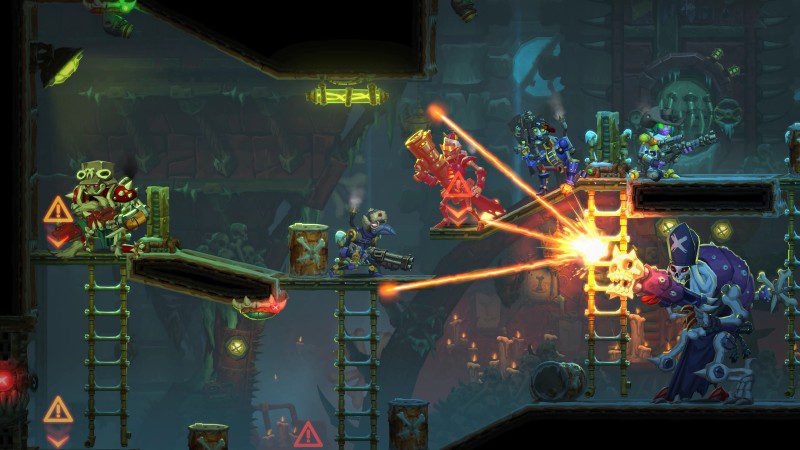No rest for wicked developer Moon Studios on why remote development is key to its success
No Rest for the Wicked is the upcoming action RPG from Moon Studios, the developer behind Ori and the Blind Forest/Will of the Wisps. It’s also the game featured on the latest cover of game Informer. Cover story writer and editor Marcus Stewart and I traveled to Vienna, Austria, to play the game and speak […]
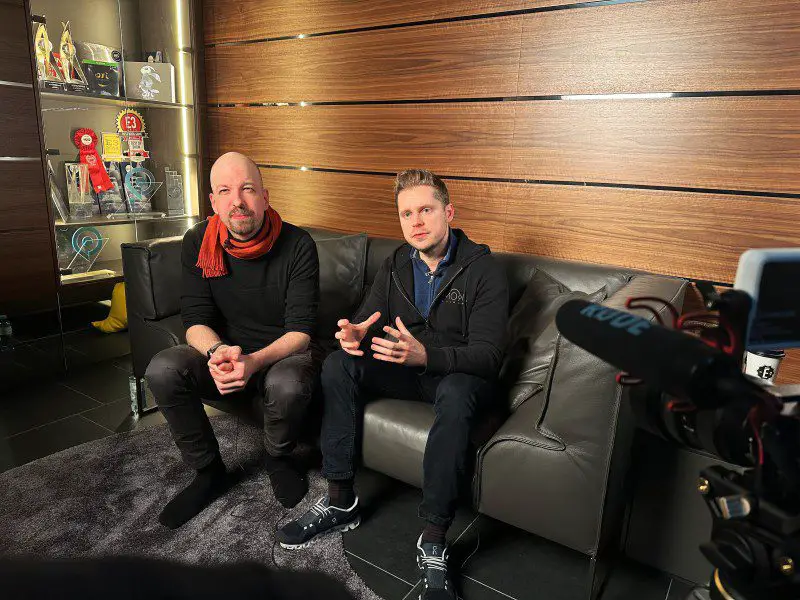
No Rest for the Wicked is the upcoming action RPG from Moon Studios, the developer behind Ori and the Blind Forest/Will of the Wisps. It’s also the game featured on the latest cover of game Informer. Cover story writer and editor Marcus Stewart and I traveled to Vienna, Austria, to play the game and speak with two of its leads, the technical and production director and co-founder of the studio Gennadiy Korol and the studio’s CEO and creative director Thomas Mahler.
However, although the frosted glass of the front door of the two-story apartment we entered was etched with the words “Moon Studios,” this studio is actually just Mahler’s workplace. Korol met us in Vienna for the cover, but he lives in Israel. The rest of Moon Studios lives all over the world, as Moon Studios is completely isolated – there is no head office to report to or a central location to work from.
Mahler (left) and Korol (right) explain why Moon Studios is a remote studio
While remote development has become more popular due to the COVID-19 pandemic, Moon Studios has been remote since its inception in 2009. When I asked Korol and Mahler about remote development, it was clear that it This is a big part of the team’s winning game development. formula, responsible for the aforementioned Ori games and the upcoming No Rest for the Wicked, which launches in Early Access on PC next month.
“We are 100 percent convinced that this allows us to hire the best talent,” Mahler tells me. “I think for us it was a little easier because we never knew anything else. We started as a remote studio. I think it’s a lot harder if you’re in a established studio and you have established proven processes that are all based on being in the office, and then now all of a sudden the world stops and you have to work remotely but those processes […] you depend on […] you must be in the office during.
“I think it’s a very difficult change to make. It’s like changing the DNA of a studio, but we’ve never had to do that.”
Mahler says he wouldn’t be in game development without the Internet and, therefore, remote work. He lives in Austria and “there are almost no [games industry] here.” But thanks to remote working, he was able to work in studios around the world. “I think it’s just amazing, right? That you can find all these incredibly talented people no matter where they live in the world, and if they’re really hungry, if they’re really passionate, if they’re willing to put in the work, then they can get a job in the gaming industry.”
He says studios that believe you have to work in the office to do good work simply haven’t adapted yet. He hopes Moon Studios’ roundup of games speaks to the idea that great products can come from remote studios. “I get asked this question a lot: ‘How did you make it look so consistent?'” he says. “The workflow is exactly the same: people play the project, they play construction, they are in constant contact with each other. I’m not necessarily sure why we have to sit in an open office to achieve this. ”
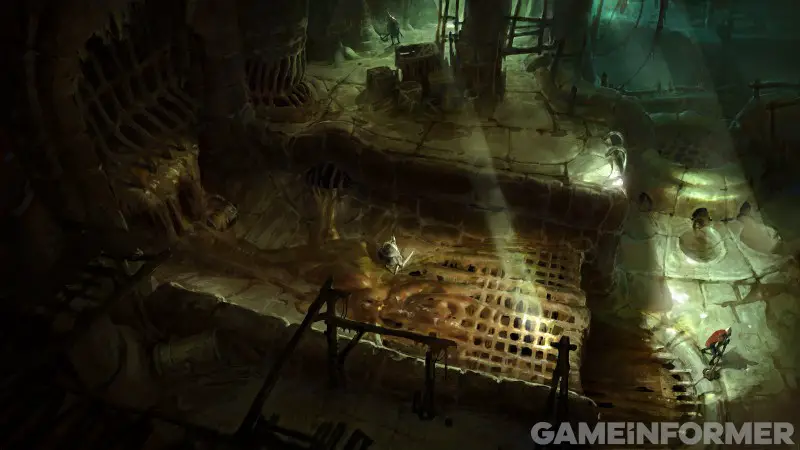
Korol, who attributes their belief in remote work to meeting Mahler on an online forum in 2004 before starting Moon Studios together in 2009, agrees.
“Some people attribute some of the things that don’t go well when people work remotely to the fact that it’s remote work,” he says. “But I think it needs to be a little more nuanced. If you’re just trying to impose a remote culture on top of the office approach, which is the structure of a lot of these companies, it doesn’t not work. You have to kind of re-envision how communication works, how documentation works, how workflow works and what the main point of focus is. I personally believe that remote work actually puts the “emphasis on the product and the work even more than on the office. work.”
Korol admits that the team misses the opportunity for cooler moments, which he says can be fantastic moments, but Moon Studios tries to replicate them with streams, encounters and more.
Korol highlights the lack of travel, allowing employees to reclaim more time, and the ability to be with family more easily, as key factors in Moon Studios’ remote success.
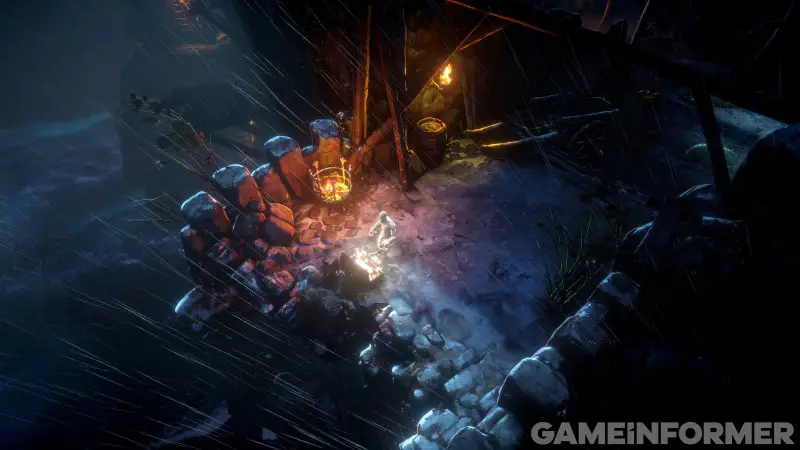
“There’s no commute, so you don’t have to worry about wasting time,” he tells me. “Especially with people with families. We find it works really well for them because they can be with their kids. We’ve heard all these stories of people saying, ‘Oh, I had to ship this game, and I didn’t ‘didn’t.’ watching my child grow up, and I missed this precious time where I will never have this again, and my child will never be this age again and it’s gone, and I was so busy with work. But what if you work remotely from home, you can still be there for your family and do a good job.
“You can manage your pace better and take much better care of your mental health, which is why I strongly believe in [remote work.]”
Ultimately, Korol and Mahler, the two heads of Moon Studios, believe that working remotely is the most efficient process. Studios that aren’t far away lack great talent for their games, they say.
“We think at the end of the day, it’s really the most effective process if you do it right, if you recruit for it, if you optimize all the communications for it,” adds Korol. “And like everything else, you also have to rehearse. So if things go wrong, your first reaction shouldn’t be, ‘Oh, let’s get everyone back to the office.’ The reaction should be, “Well, why isn’t this working? Can we tweak it? Can we tinker with it a little more?’ And I feel like maybe some people are jumping in a little too quickly and missing out on some opportunities with great talent.”
No Rest for the Wicked will be available in Early Access on PC next month, April 18.
While we wait for its launch, check out this featurette outlining No Rest for the Wicked’s Early Access roadmap and endgame content, then experience over 25 minutes of the game in our new No Rest for the Wicked gameplay today ‘today.
You can learn even more about No Rest for the Wicked by checking out our features and videos rolling out over the coming weeks in our exclusive coverage hub below.


